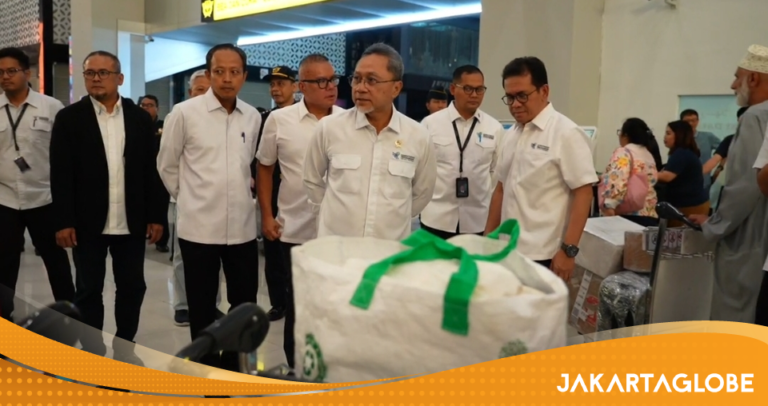JakartaThe Ministry of Commerce has announced that it will study the potential implementation of two types of import duties to protect the textile and ceramics industries.
Commerce Minister Zulkifli Hasan revealed that the two types of import duties are safeguard duty (BMTP) and anti-dumping duty.
“If imports increase and harm our industries, under national regulations we can impose BMTP or safeguard duty,” Zulkifli Hasan said on Friday, July 5, 2024.
He made the statement after a meeting chaired by President Joko Widodo.
Zulhas, as he is popularly known, said the meeting ended with a decision to focus on certain products including textiles and textile products (TPT), readymade garments, ceramics, electronics, cosmetics, finished textile products and footwear.
“The ministry will take all necessary measures to protect these products, in accordance with national regulations and international agreements, such as those of the WTO,” Zulhas said.
Zulhas said the Indonesian Trade Safeguard Committee (KPPI) will review the average imports of these products over the past three years. Based on this review, the correlation with the losses suffered by domestic companies will be examined.
“The data of the associations will be checked to see which companies have gone bankrupt or closed down. Then the BMTP will be determined,” Zulhas explained.
Indonesia’s textile industry has faced massive layoffs due to the influx of cheaper Chinese textiles. The Indonesian Trade Union Confederation (KSPN) reported nearly 50,000 job losses in the textile industry as of early June this year.
Similarly, the Indonesian Anti-Dumping Committee (KADI) is conducting a study on product imports over the past three years. The results of this study will serve as the basis for imposing anti-dumping duties.
“For example, if it is ceramics or footwear, we will look at the last three years. If there is an increase that harms our industries, we can impose anti-dumping duties. These calculations are underway,” Zulhas concluded.
Indonesia is considering imposing a 200 percent tax on imported goods such as clothing, steel and textiles because domestic industries are struggling to compete with cheaper imports from China.
President Joko Widodo summoned Industry Minister Agus Gumiwang to the presidential palace on Tuesday to discuss the import tax bill. The minister said President Jokowi had set a two-week deadline to finalize progress on the bill.
Keywords :


